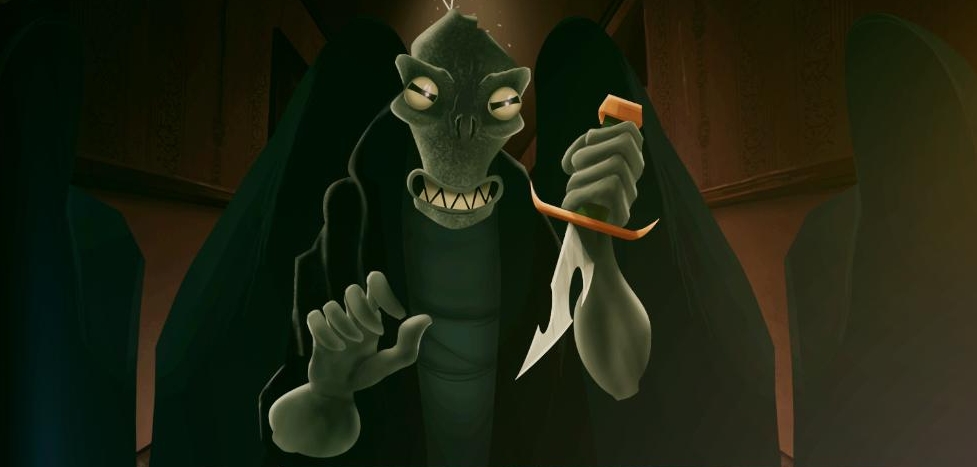
PC, Mac, Android, iOS
I feel such a muddle of contradictions when it comes to games based on Lovecraft mythology. On the one hand, he was a deeply and sinisterly racist man whose writings were infected with his bubonic hate. On the other, I strain to be an ardent follower of Barthes’ Death Of The Author, and where it’s possible strive to divorce the creator from their creation. Clearly most of what Lovecraft wrote was about unracist spooky octopuses, and spooky octopuses seem like a good subject for exploration to me. But also, he really was a horrible person.
Then again, I’ve never read a word he’s written, and as such have no investment whatsoever in Innsmouth and its various betentacled antics. Which always puts me in the position of wondering: why not just think up your own seaside monsters? What is it about Lovecraft’s work that people feel so beholden to it, so determined to directly reference his universe? Or why not pick Poe? Or Irving? Or Loudon, Le Fanu, or James? Heck, rip off someone who’s not out of copyright, but change all the names.
Of course, we’ve just had the completely splendid/silly Lovecraft Country, that simultaneously provided a crushing portrayal of American 20th century racism alongside a lot of very daft ghost/monster stories. It, as all Lovecraft-based fiction now must, began with a disclaimer of sorts. In Lovecraft Country it was a conversation between two characters to acknowledge that one can try to enjoy the creations of a bigot, but never ultimately escape them. In mostly-text adventure The Innsmouth Case, it’s a rather woolly statement that appears when you begin playing.

To which I, once again, just think: so write about something a bit like it then? But they didn’t, and none of them is Lovecraft, so let’s carry on by just seeing what the game itself is like.
Well, it’s rather silly. Very pleasingly so. Working like an extremely pretty Twine game (I suspect it’s running Ink), you choose from two or three different responses to any given situation, as the text vividly and amusingly describes the tale. You are a private investigator, in the modern day, asked to visit Innsmouth to help a rather suspicious vampish lady find her supposedly missing 8-year-old daughter. She seems oddly unaware of the specific details, like what her daughter might look like, but is also very impassioned about her safe return.
So off to the seaside town you head, on a bus filled with deeply peculiar people, and start choosing your own adventure from the off. Do you immediately investigate? Do you head to the harbour? Or check into the hotel? These aren’t fake decisions – they lead to long chains of events of their own. I chose the latter, because who doesn’t want to get settled on arrival, and ended up on a very unsettling coach journey to a so-called “wellness” event.

That’s the joy here: modern-day notions in a town otherwise trapped in early 20th century America. It’s played for laughs rather than scares, and that’s very welcome. The writing is absolutely splendid, excellently lyrical as it delivers its silly situations in a serious tone.
There’s a vast amount of writing here, and it’s consistently well written, albeit with a scattering of grammatical mistakes. It’s enormously impressive how extensive and meticulously detailed is each tangent. There are diverging threads with multiple routes to death or back to the main path, that can be entirely ignored.
The only thing that rather sticks out about the writing is the frequent descriptions of Innsmouthians as being “deformed”, which seems like a term to describe a person that we could likely do without. It’s mostly being arch, because their “deformities” are that they’re a fish-person or whathaveyou, but, well, you know, regular people have deformities, and constantly using it as a sign of these people’s creepiness feels way off mark.

Just as much as anyone can appreciate a Godfather reference without ever having watched the Godfather, I’m able to understand very many of the Lovecraftian themes just from having played so many video games. And while this is so jam packed with them that I imagine a good few are going over my head, it’s not alienating in its approach. Because, heck, Lovecraft might have been a pivotal writer in gothic horror fiction, but his influence was so widespread in the genre that everyone’s picked up some of it somewhere.
Just over £10 is a very fair price for this, but because everything is awful, a difficult sell for a text adventure. Fortunately there’s a demo if you want convincing, which will show just how much extra work has gone into this to elevate it from just text on a screen. (Although this is made awkward by the mobile version being only £3/$5.) The art work is sparing, but effective, and the characters are completely bonkers and wonderfully animated. Plus, and this is a real stand-out feature here, the sound plays an enormous role. It’s enormously evocative, and helps make the text more alive.

Death is always a few clicks away, but the game lets you restart from the beginning of any of the previous chapters you’ve played through – in that sense it’s very much in the spirit of a choose-your-own-adventure book with your fingers and thumbs in multiple pages. And true to form, a lot of those deaths feel “unfair”, but in the good way. As in, you can’t game this, making obviously sensible decisions in an effort to survive – sensible is rarely an option, and survival is often madcap, and that works very well.
So yes, clearly this is a hefty tribute to Lovecraft’s world, and in that sense it’s why this game needed to be set in his creations. Although their writing chops are strong enough that they could have developed something creepy and funny from their own imaginations. Whether you care about this or not is up to you. I find that I can think Lovecraft a ghastly and pathetic man, and still enjoy a very well made game set in his stories. This is such a game, and I’m glad I played it. And replayed it. If anything, it’s the restrictions the setting applies that I think lets Lovecraftian games down for me, and I absolutely cannot wait to see what RobotPumpkin Games might make next, given the vast amount of talent on show here.
- RobotPumpkin Games / Assemble Entertainment
- £10.50, €12.50, $12.50 (PC), $5 (iOS/Android)
- Steam, iOS, Android
- Official Site
All Buried Treasure articles are funded by Patreon backers. If you want to see more reviews of great indie games, please consider backing this project.


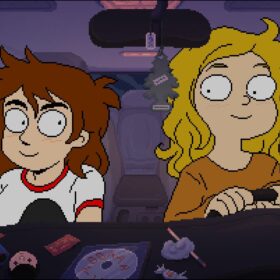
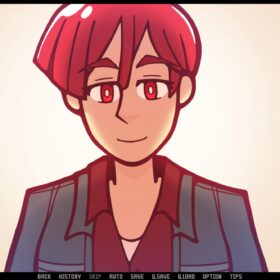

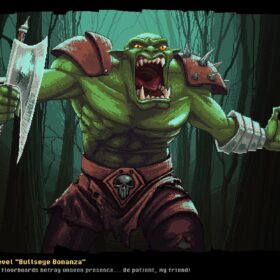
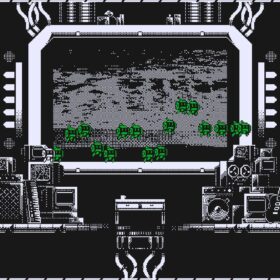
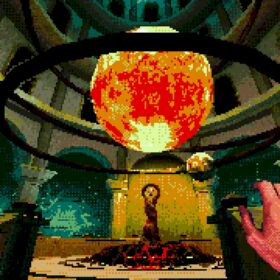

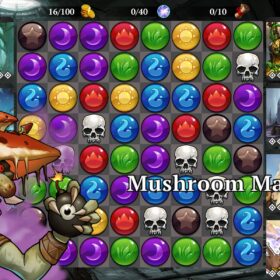
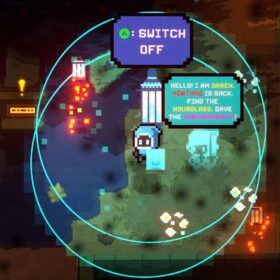
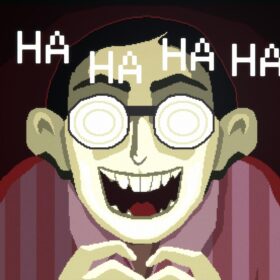
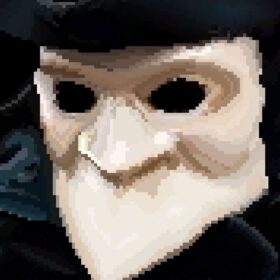

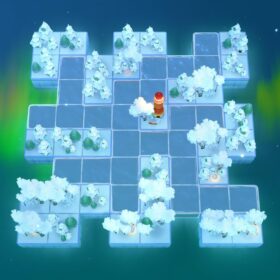
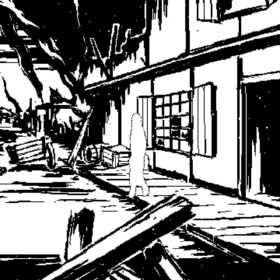



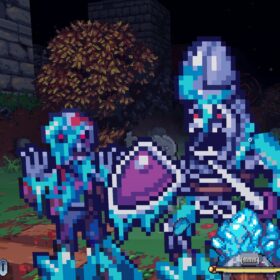
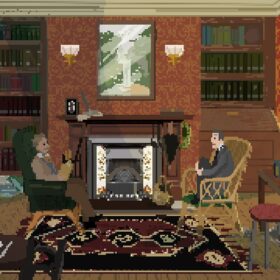
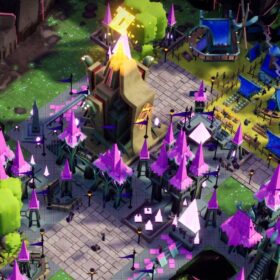

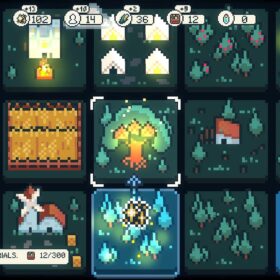

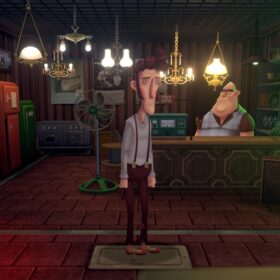
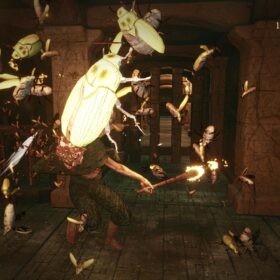

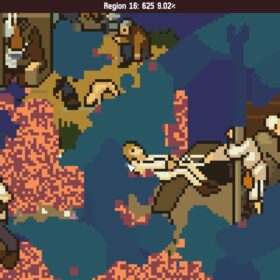



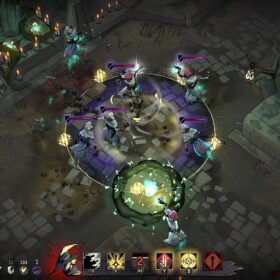
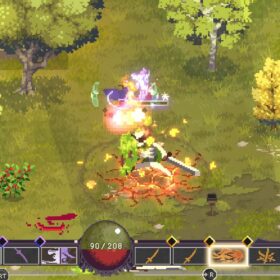
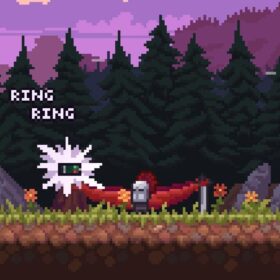

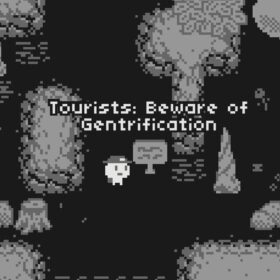
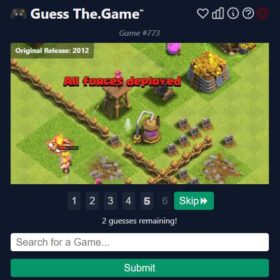
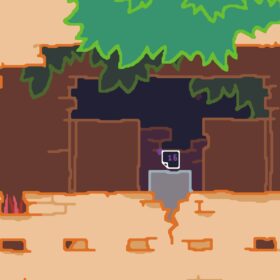
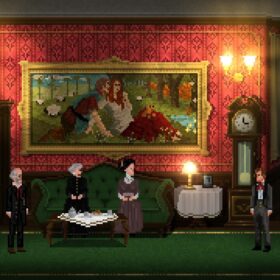

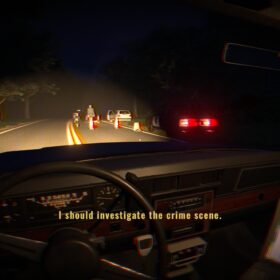
“Death of the author” doesn’t mean one should simply “divorce the creator from their creation” and carry on! It means the creator’s is only one perspective, and not a privileged one, on the meaning and interpretation of the work!
I enjoy Lovecraft and many other such “problematic” authors but there is no creator/created dichotomy here. HP’s racism is readily obvious at the surface level of his popular works, not merely his letters and ephemera or his or pet nomenclature, and in creating Lovecraftiana one either grapples with it, delicately or clumsily as the case may be, or tacitly accepts it.
Yeah, it’s funny that since John hasn’t read Lovecraft, he doesn’t realize that the racism is even worse than he makes out–it’s the central idea of so many of the stories, this absolute disgust and fear toward the foreign, the dark, the other. And that’s part of why I find his stories so oddly compelling–they give me unusual insight into how a deep-seated racist sees the world!
With all due respect, you bang on Lovecraft quite a bit before admitting that you’ve never read a word he’s written. I have and while it is true that his personal racism can be found in his works, I wouldn’t say his work is any worse than a lot of stuff from that era. This is the era that gave us stuff like “The Birth of a Nation” and Spiritualism. It’s just the way it was back then. Thank god we’ve made great strides since then even though we have much more to go.
“It’s just the way it was back then” is such a preposterous and inaccurate argument. Plenty of people knew way better, including plenty of white people! And that’s the other thing–you write as if no non-white people made art or were the audience for art in the early 20th century.
I wonder if we’ll get into an era where people can make video games based on Lovecraft’s stories and mythos and have the games reviewed on their content without fakey, “woke” protestations about what a “horrible person” Lovecraft was. Lovecraft lived in poverty most of his life, was virtually unknown as an author, never ran for public office, didn’t have the power of social media, and was never a member of any major political organizations. Yeah, he was racist and a bit misanthropic, but he kept to himself and died young in great suffering in his early 40s thus depriving us of ever knowing what kind of man he could have potentially become; maybe he would have grown to abandon his prejudices. Who knows? He was also responsible for aiding budding authors who would go on to become massive figures in horror/sci-fi literature. “Horrible person?” Like…what do you actually know about him? We have authors who are alive right now, rich, and using modern technology to spread insanely hateful ideologies and I feel like they get more of a pass sometimes than a dude who has been dead for like 80+ years and makes a way easier target.
I’ve just started this and it’s quite well written, with a consistently amusing tone. That said, I’ve never seen such bizarre use of the comma. They’re not just typos. The writer actually seems to believe commas belong in places they could never possibly fit, like nuts in gum.